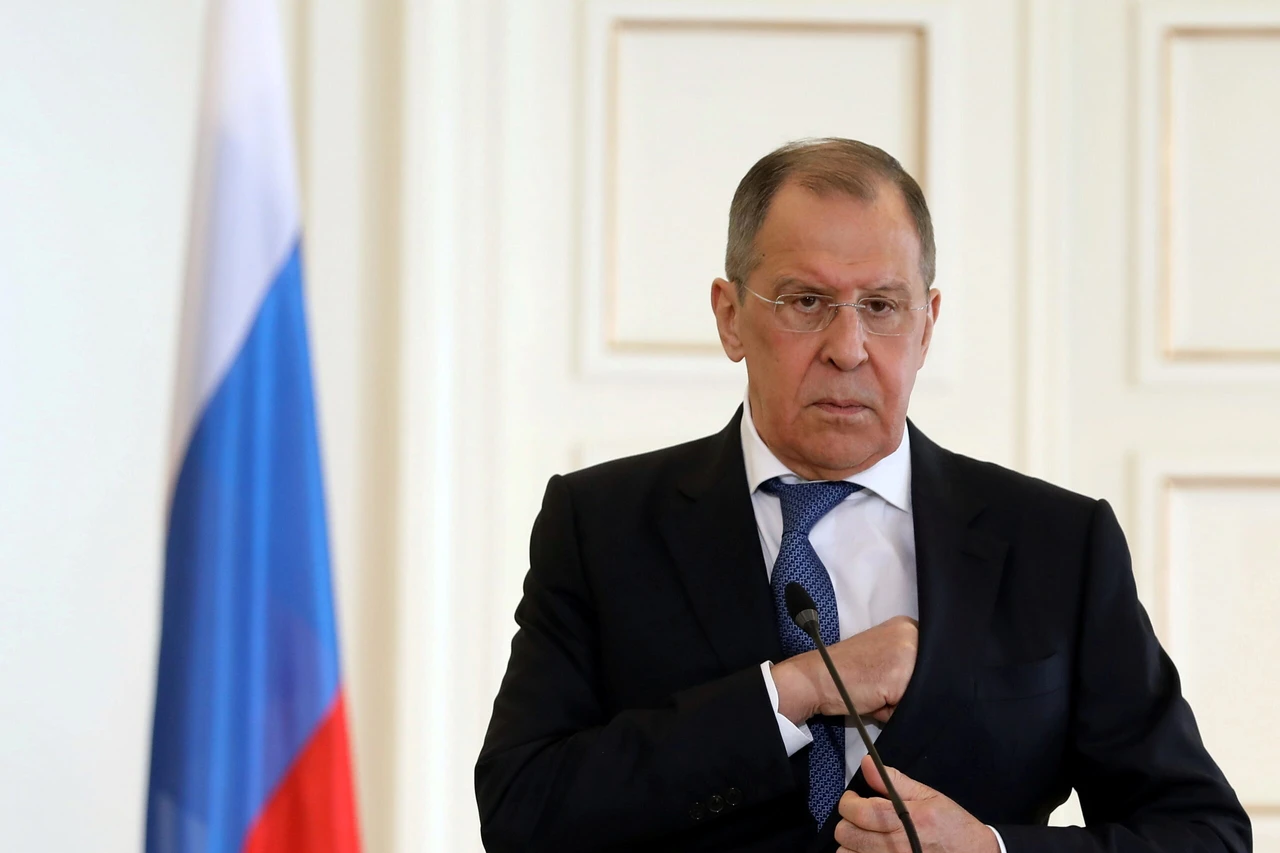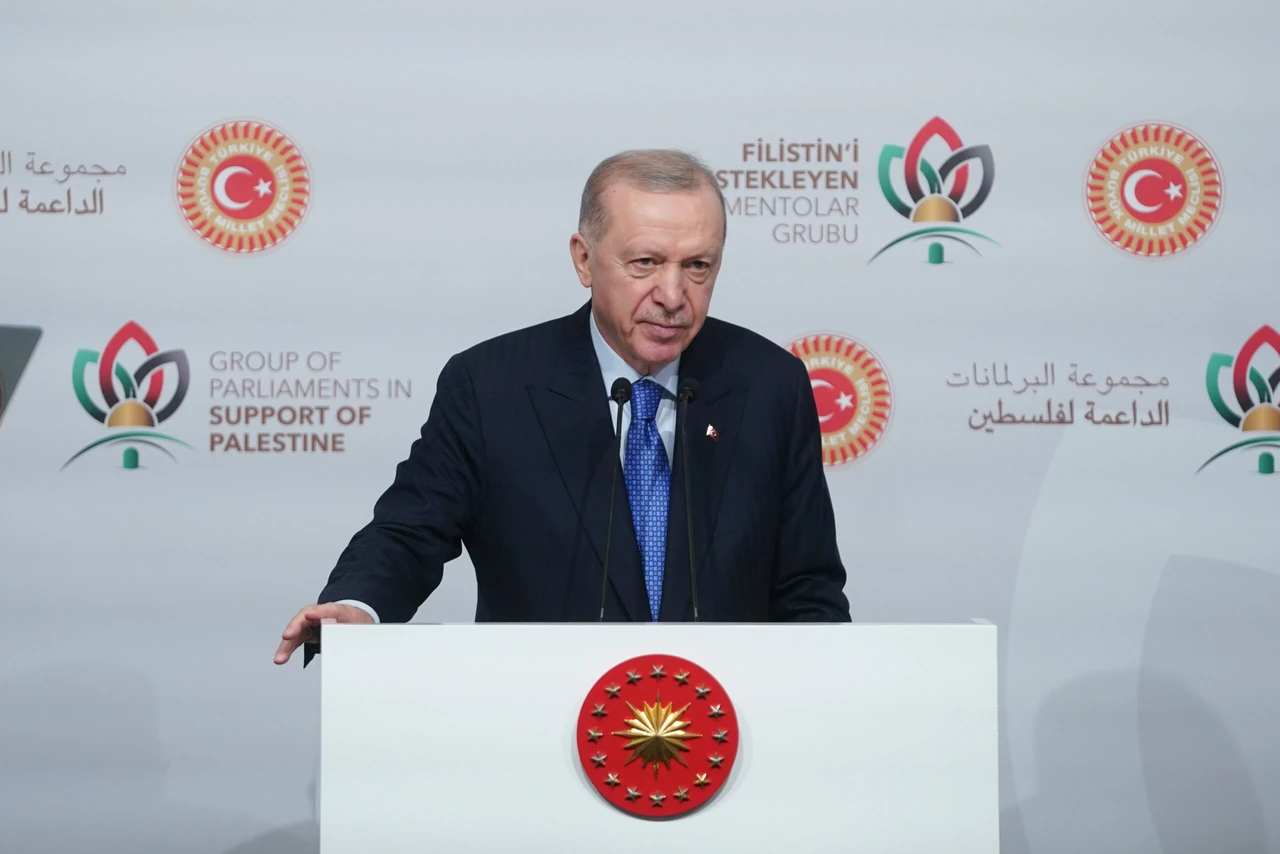Russia backs Syria-Türkiye normalization, warns on US support for PKK/YPG: Lavrov
 Russian Foreign Minister Sergei Lavrov, Athens, Greece, October 26, 2020. (Reuters Photo)
Russian Foreign Minister Sergei Lavrov, Athens, Greece, October 26, 2020. (Reuters Photo)
Russian Foreign Minister Sergey Lavrov stated that the United States is using the terrorist group PKK/YPG for its own interests in Syria, and warned that those who trust U.S. promises could face consequences similar to the Afghan government.
Lavrov made these remarks during an interview for the documentary “Bridges to the East,” where he discussed issues related to Syria, Palestine, Lebanon, and Ukraine.
Lavrov highlighted the presence of U.S. military forces in Syria, noting that this directly influences the situation on the ground, particularly east of the Euphrates River. He criticized the U.S. for establishing a 55-kilometer exclusion zone around the Al-Tanf region, accusing them of trying to form a “quasi-state” rather than addressing counterterrorism challenges.
He pointed out that the Americans and their allies are exploiting the region’s oil and gas fields and fertile agricultural land. Lavrov added, “The profits from these resources do not go to the Syrian budget, but instead support separatism and the creation of a quasi-state.”
Addressing the PKK/YPG‘s role, Lavrov remarked, “The Americans are using the Kurds for their own games. The Kurds need to realize that their future lies within a united Syria and that they should not count on American support. They must reach an agreement with the Syrian government on their rights as a national minority.”
Lavrov expressed concern over the ongoing situation, recalling how the Americans abandoned the Afghan government overnight. “We remind our Kurdish colleagues of what happened to those who chose to trust U.S. promises in Afghanistan. The Kurds should take into account this historical experience and work towards a national dialogue with Damascus,” he said.
“We support reconciliation between Damascus and Ankara”
Lavrov also discussed Türkiye’s presence in Syria, highlighting its emphasis on maintaining Syria’s territorial integrity and its temporary presence until the terrorism issue is resolved. However, he acknowledged that Damascus remains cautious about improving relations with Ankara due to ongoing Turkish operations in the Idlib de-escalation zone and against extremist Kurdish forces.
He mentioned that representatives from Syria, Türkiye, Russia, and Iran have held meetings to discuss improving relations between Syria and Türkiye, though no agreement has been reached yet. Lavrov emphasized that the Syrian government believes a clear decision on the withdrawal of Turkish forces from Syria is necessary for the process to continue.
Lavrov also mentioned that discussions are underway to discuss measures aimed at ensuring the return of refugees and mitigating the terrorist threat, thereby eliminating the need for Turkish forces. He expressed hope for improved relations between Damascus and Ankara, announcing the holding of a similar meeting soon.
“Hamas is part of the Palestinian people”
Lavrov touched on the situation in Lebanon, criticizing Israel’s actions during its 2006 offensive and accusing it of trying to resolve its problems through force. Israel’s continued reliance on military solutions since then has proven ineffective, he stated, and the resolution of issues in the region, including the Palestinian conflict, must be based on the legitimate rights of the region’s people.
He criticized Israel’s strategy towards Hamas in Palestine and Hezbollah in Lebanon, contending that these groups are essential components of their respective populations and their elimination through force is not feasible. Lavrov called for the implementation of United Nations resolutions, particularly those calling for the establishment of a Palestinian state based on the 1967 borders, as the only path to lasting peace and security for Israel.
Lavrov also condemned Israel’s disregard for U.N. resolutions concerning Palestine and criticized the U.S. for its unconditional support of Israeli actions. “It’s regrettable that Washington turns a blind eye to Israel’s decisions and blocks any agreement in the U.N. Security Council that could lead to a permanent ceasefire. He stated that the U.S. persists in supplying weapons to West Jerusalem, which they use to inflict violence on the Palestinian people.
Lavrov described the failure to establish a Palestinian state despite U.N. resolutions as an example of Western hypocrisy and double standards. He concluded, “If you truly respect sovereignty, you should establish the Palestinian state in accordance with Security Council decisions.”
“Israel wants a major war in the Middle East”
Regarding the possibility of a major war in the Middle East, Lavrov suggested that Israel seems to be the only country interested in such an outcome. He accused Israel of attempting to resolve its issues with Hamas, Hezbollah, and Iranian-aligned groups in Syria and Iraq through force. However, he pointed out that Iran has no interest in inciting a large-scale conflict.
“Our territory is not up for negotiation with Ukraine”
Lavrov also addressed the situation in Ukraine, mentioning that the Ukrainian military attacked Russia’s Kursk region in early August and briefly took control of part of the area. He insisted that Russia would not negotiate or bargain over its territory, rejecting any discussions on the matter.



